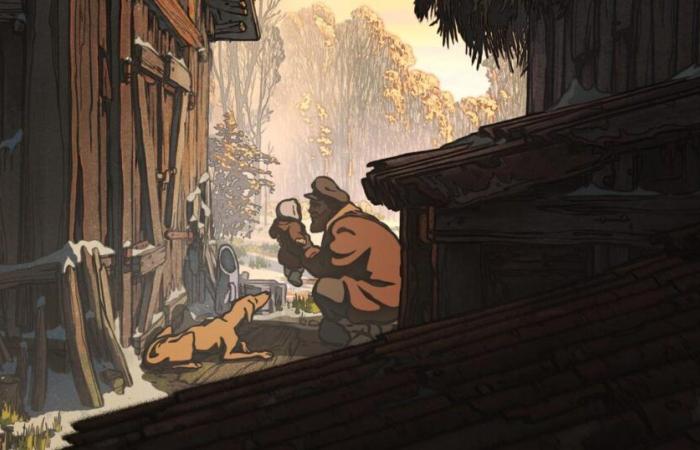In his animated film “The Most Precious of Goods” presented at the last Cannes Film Festival and released in theaters on November 20, director Michel Hazanavicius tells the story of a Jewish baby saved by a couple of loggers during the Holocaust . A story of “Righteous Among the Nations.”
A couple of lumberjacks live deep in a Polish forest. The wife still mourns the death of her child and implores the gods to send her a gift as the trains pass, carrying the Jews to Auschwitz. One day, she hears the cries of a newborn that she takes in against the advice of her husband, who shares with the local population a fierce hatred against these “heartless” people.
Two opposing destinies
The little girl is raised thanks to the love of the lumberjack, to the milk of a man with a ravaged face, to the empathy of the lumberjack who changes his mind about her, while the tragic destiny of her family, of her mother , of his father and his twin sister is shown to us in parallel.
Adapted from the novel by Jean-Claude Grumberg, “The Most Precious of Commodities” stands out as a refined, very beautiful animated film, which observes the Shoah from a wonderfully unique angle. A tale told, in voice-over, by Jean-Louis Trintignant, which draws quite strong emotion from its short duration and the simplicity of its words.
>> See the Vertigo cinema debate dedicated to the film:
People as simple as they are exceptional
By following the little girl's father in the Auschwitz camp, Michel Hazanavicius does not avoid the Nazi horrors in some shocking images which a priori distance this animated film from a children's audience. A story of light in the heart of darkness, preferring to absent gods the very real presence of human beings of exceptional goodness, which reminds us that apart from love for children, one's own and those of others, everything else is only silence.
Rafael Wolf/sf
“The most precious of goods” by Michel Hazanavicius, with the voices of Jean-Louis Trintignant, Dominique Blanc.







